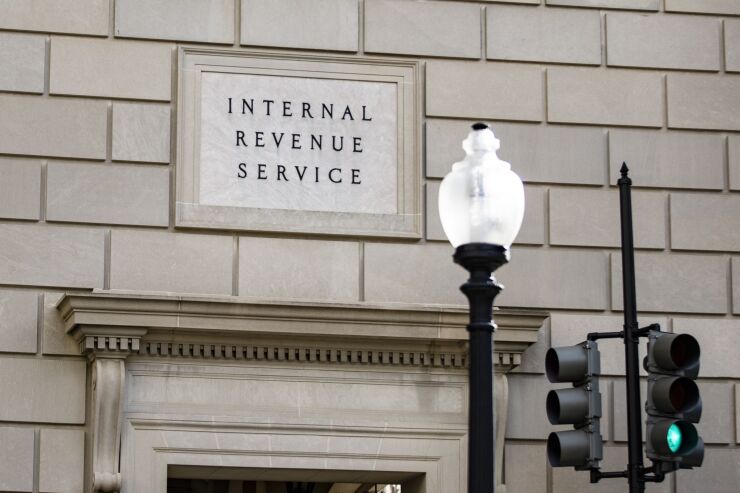A small reduction in the tax gap could produce major fiscal benefits for the federal government, according to a new report that suggests some ways for the Internal Revenue Service and Congress to narrow the gap.
The
Several factors, including the complexity of tax laws, contribute to the tax gap. To reduce the gap, the report recommends that the IRS implement a way to digitize tax returns so its tax enforcement programs can better identify taxpayers who aren't complying with the tax laws, including those who underreport their income.
The IRS found that underreporting of tax liabilities makes up 80% of the gross tax gap. Individual underreporting alone represents more than half (56%) of the gross tax gap. The individual underreporting category includes estimates related to income from sole proprietorships, partnerships, S corporations, estates and trusts, among others.

A number of issues contribute to the tax gap, including limited third-party information reporting. "The extent to which individual taxpayers accurately report their income is closely aligned with whether third parties (e.g., employers) report income to them and to [the] IRS," said the report. "Increased information reporting could help improve compliance, especially related to sole proprietors who continue to represent the largest share of the individual underreporting tax gap."
Another factor is the decline in audit rates, which declined for individual income tax returns for all income levels for tax years 2010 to 2019. IRS officials attributed the decrease mainly to reduced staffing because of decreased funding.
Taxpayer service is another major factor. "Good customer service can help make it easier for taxpayers to comply with their tax responsibilities," said the report. "However, taxpayers often have trouble reaching [the] IRS by phone and can wait for months for mail to be answered. Taxpayers with limited-English proficiency face challenges getting tax information in their languages. Taxpayers could benefit from additional options to file returns for free."
The IRS doesn't have clear performance goals for improvements in the taxpayer experience, according to the report.
The complexity of the Tax Code also plays a role, imposing record-keeping, planning, computing, and filing requirements on taxpayers, and leading to errors and under- or overpaid taxes. Other changes, such as the rise of the gig economy workforce, can pose problems as taxpayers try to understand how to calculate their taxes.
Abusive tax shelters are another factor in the tax gap, according to the GAO. Offshore insurance products, for example, can be designed to hide U.S. taxpayers' assets or to falsely claim federal income tax benefits. Promoters also market abusive tax schemes that are designed to circumvent tax laws or evade taxes. The IRS should improve its ability to identify and deter promoters and stop abusive tax schemes, the GAO recommended.
"The tax gap has multiple causes and spans different types of taxes and taxpayers, so multiple strategies are needed to reduce it," said the report.
The GAO also pointed out the IRS's budget and staffing levels have fallen over the past decade, at the same time as the service has faced increasing responsibilities, including distributing stimulus payments to taxpayers during the COVID-19 pandemic.
The report recommended the IRS should re-establish specific quantitative goals to reduce the tax gap and document a plan for using data to update compliance strategies. The IRS should also research, evaluate, and develop recommendations to expand third-party information reporting, according to the report, as well as implement a cost-effective method to digitize taxpayer-provided paper return information, making it more available for IRS's tax enforcement programs.
In addition, the report suggested the IRS should amend its annual "Dirty Dozen" list to tell taxpayers how to refer information to the IRS on preparers and promoters involved in abusive tax schemes.
The GAO also had some recommendations for Congress, including that Congress consider granting the IRS explicit authority to establish professional requirements for paid preparers to help increase the accuracy of tax returns. It also wants Congress to provide the IRS with expanded authority — with appropriate safeguards — to correct errors and discrepancies between what the taxpayer reported and other government information. Congress should also require that tax returns prepared electronically but filed on paper include a scannable code, the GAO suggested.





